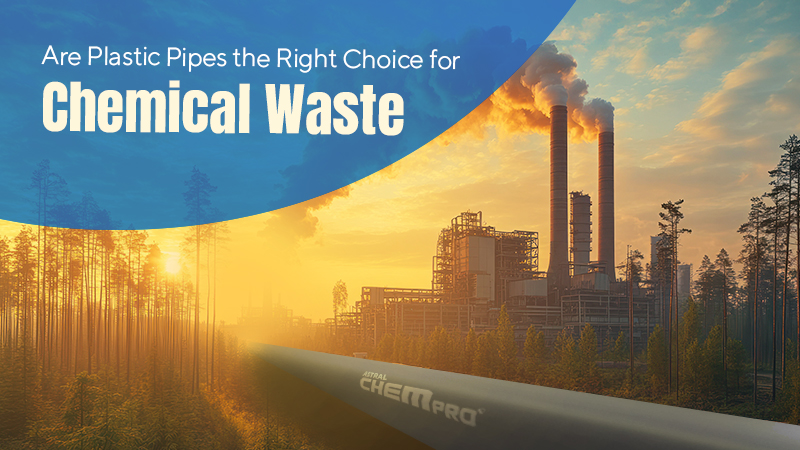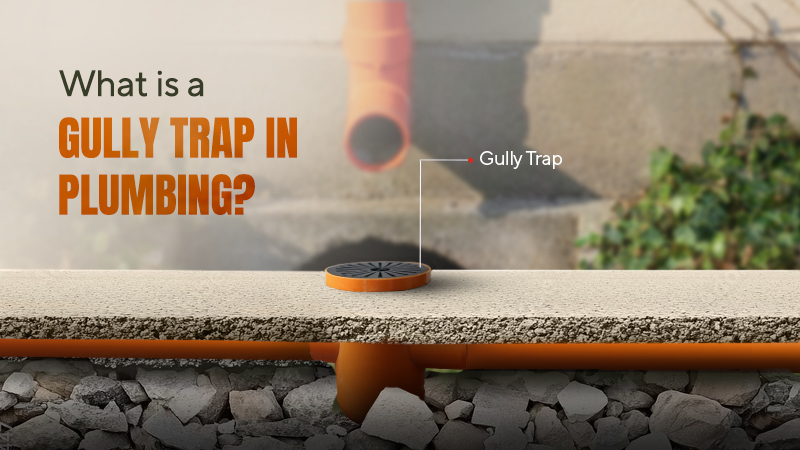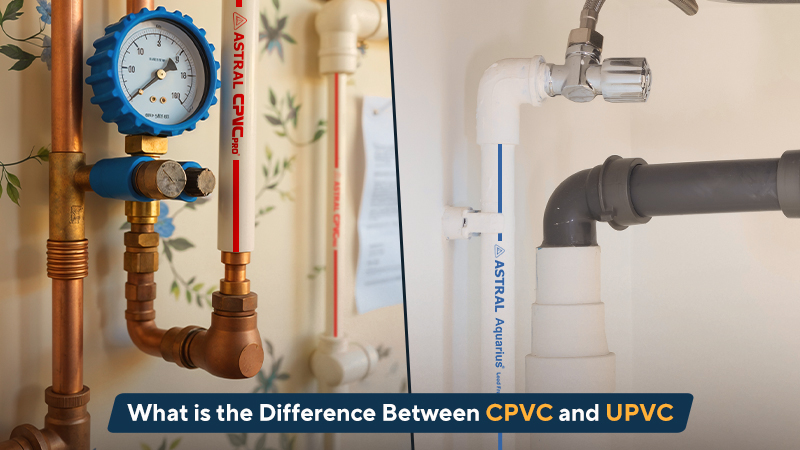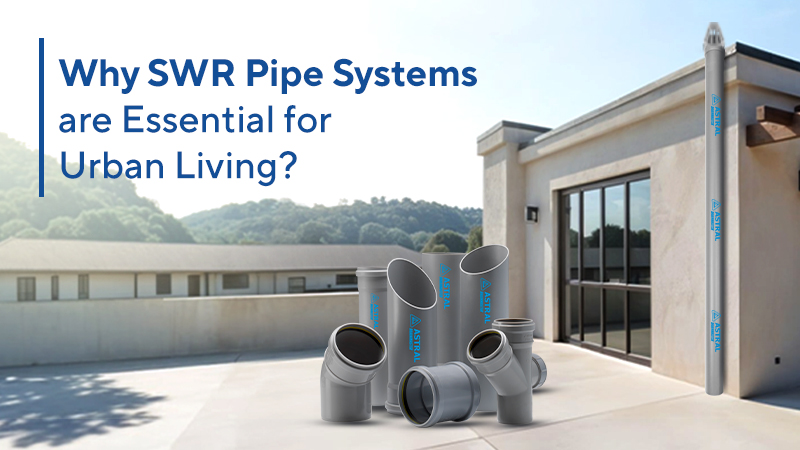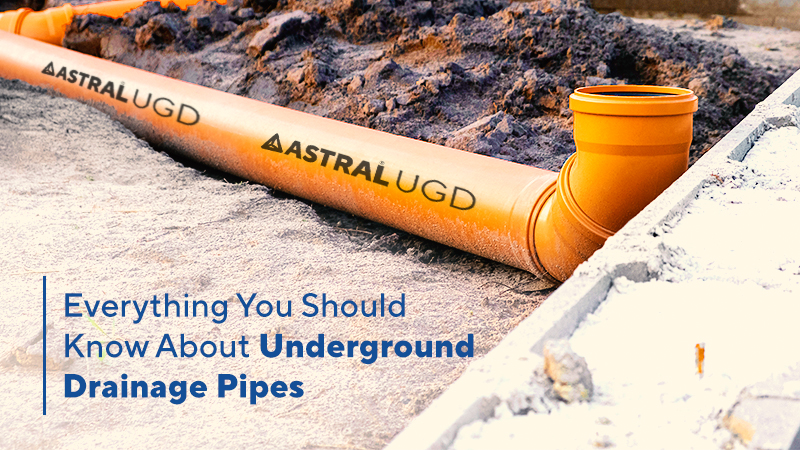
28 Jul 2025
Everything You Should Know About Underground Drainage Pipes
Every day, wastewater from kitchens, bathrooms, public toilets, and even commercial industries flows beneath our feet unnoticed. This is made possible by underground drainage pipes and fittings, which channel waste into sewage systems, keeping our surroundings clean and hygienic.
To withstand harsh underground conditions, these pipes are designed for strength, durability, and resistance to environmental factors. Common materials include High-Density Polyethylene (HDPE), Polyethylene (PE), and Polyvinyl Chloride (PVC), with PVC pipes being a preferred choice for durability.
In this blog, we will cover everything you need to know about underground sewage pipes—the process, materials, specifications, sizes, and benefits, to help you choose the right one for your project.
What are Underground Drainage Pipes?
Underground sewage pipes transport wastewater and stormwater from homes, public spaces, and industries, ensuring a clean and hygienic environment. The water flows through gutters or drains and is directed via pipes with carefully designed slopes to maintain efficient flow and prevent blockages.
Once collected, the wastewater is safely discharged into sewers, soakaway pits, or treatment plants for proper disposal. PVC pipes are highly preferred for these applications due to their durability, corrosion resistance, and ease of installation, making drainage systems more effective and long-lasting.
Importance of PVC Underground Pipes for Drainage Systems
PVC sewage pipes stand out for their lightweight yet durable design, making them ideal for underground drainage. Here are some key factors that make them highly preferred:
1. Hygienic and Leak-free Joints
These drainage pipes and fittings are designed with precision-engineered joints, that create secure connections and prevent leaks or contamination. Such a tight bonding ensures a safe and efficient drainage system.
2. Excellent Stiffness and Impact Resistance
These pipes withstand soil pressure, ground shifts, and external loads without cracking or collapsing, making them ideal for underground environments.
3. High Resistance to Abrasion
Their smooth inner surface minimises wear and tear from high water flow and debris, reducing maintenance needs and ensuring consistent performance.
4. Corrosion-free and Chemical-resistant
PVC pipes are immune to galvanic or electrolytic corrosion. They do not degrade when exposed to harsh chemicals or moisture, ensuring long service life in underground conditions.
But to fully optimise the nature of the features we discussed above, you must select the right size of PVC underground drainage pipes and fittings. Using an incorrect size can lead to blockages, overflows, or even unnecessary costs if an oversized pipe is installed.
Choosing the Right PVC Pipe for Underground Drainage Applications
PVC sewage pipes are categorised into different strength classes, denoted as SN2, SN4, and SN8, each designed to withstand specific external loads and installation conditions.
1. SN2 (SDR 51)
These pipes have a lower wall thickness and are suitable for areas with minimal load requirements, such as residential lawns, gardens, and pedestrian zones. They are not recommended for regions subjected to heavy traffic or significant external pressures.
2. SN4 (SDR 41)
With medium wall thickness, SN4 pipes are ideal for standard underground drainage in residential and light commercial areas. They offer a balance between strength and flexibility, making them suitable for installations under light traffic conditions.
3. SN8 (SDR 34)
Featuring thicker walls, SN8 pipes are designed to withstand heavy loads and are appropriate for high-traffic areas, industrial zones, and public infrastructure projects. Their robust construction ensures durability under substantial external pressures.
If you are confused about the size difference, then consider these things when selecting the pipe:
1. Load Requirements: Assess the expected external loads, including vehicular traffic and soil pressure, to determine the necessary pipe strength class.
2. Installation Depth: Deeper installations may require drainage pipes and fittings with higher stiffness to resist soil and load pressures effectively.
3. Soil Conditions: Understanding the soil type and its bearing capacity can influence the choice of pipe class to ensure stability and longevity.
4. Cost Implications: Selecting a pipe with an appropriate strength class ensures cost-effectiveness by avoiding over-specification and potential future maintenance expenses.
By carefully evaluating all these factors, you can ensure a reliable, efficient, and durable underground drainage system tailored to your project’s needs.
Benefits of PVC Drainage Pipes and Fittings
Installing the right and quality PVC pipes in underground drainage systems offers several advantages that enhance efficiency and cost-effectiveness:
1. Reduced Excavation Costs
The lightweight nature requires less digging and heavy machinery, minimising excavation expenses and speeding up installation.
2. Lower Installation and Maintenance Costs
These pipes are easy to install due to their flexibility and secure joints. Their inherent durability implies fewer repairs and replacements, significantly reducing long-term maintenance costs.
3. Effortless Handling and Transportation
Their lightweight composition allows easy transportation and on-site handling, eliminating the need for specialised equipment and reducing installation time.
4. Enhanced Hydraulic Efficiency
These pipes’ smooth inner bore reduces friction, ensuring unrestricted water flow. This design prevents scaling, sediment buildup, and blockages, maintaining optimal drainage performance over time.
With these advantages, PVC underground pipes offer a reliable, cost-effective, and long-lasting solution for modern drainage needs. Their combined features make them ideal for residential, public places, and industrial underground drainage systems and fittings.
Why Astral Pipes For Underground Drainage Pipes and Fittings?
At Astral Pipes, we provide a high-performance PVC Underground Drainage System designed for durability, strength, and efficient water flow. Our leak-proof joints of the pipe ensure a secure, contamination-free system, while the lightweight design simplifies installation and reduces costs.
Built to withstand abrasion, corrosion, and harsh conditions, our pipes require minimal maintenance and meet IS:15328 standards for top-tier reliability. With a long service life, they offer a cost-effective and eco-friendly choice for modern drainage needs.
Achieving Reliable Underground Drainage Solutions
Choosing the right underground sewage pipes is key to building a durable and efficient system. PVC pipes are the top choice for their exceptional strength, cost-effectiveness, and ease of installation, making them a trusted solution preferred by many plumbing professionals.
Discover our range of underground drainage pipes to find the perfect fit for your project. With high-quality materials designed for underground applications, you can ensure reliable performance, minimal maintenance, and long-term durability.
To learn more about uPVC pipes in underground drainage systems, read our blog on How uPVC Pipes Handle Pressure in Underground Drainage System?


